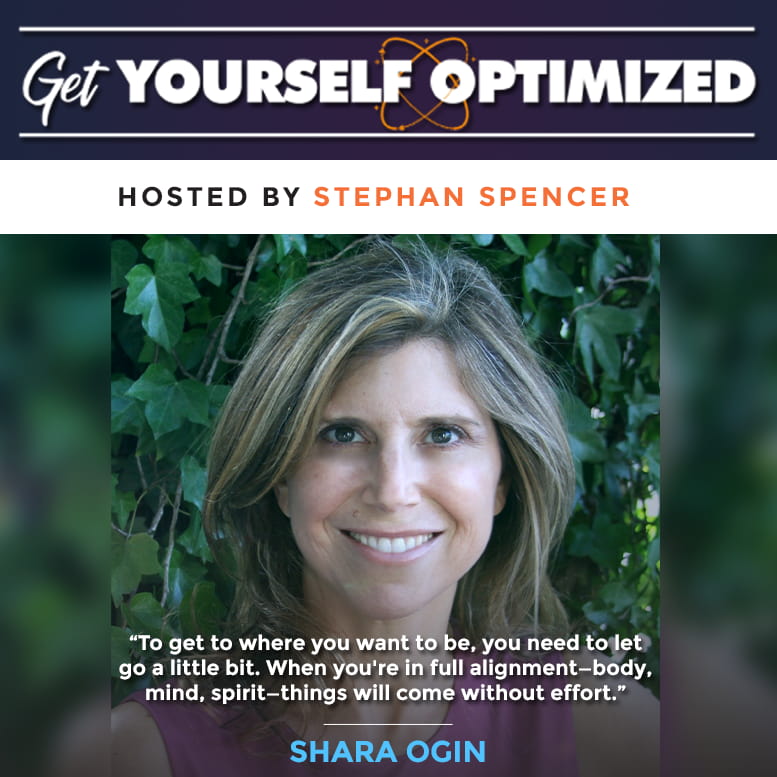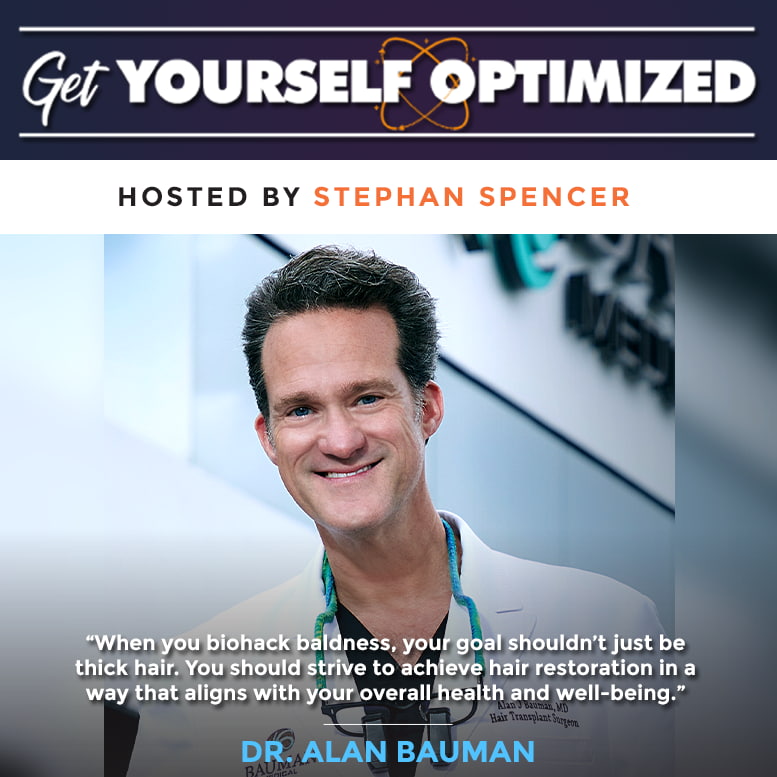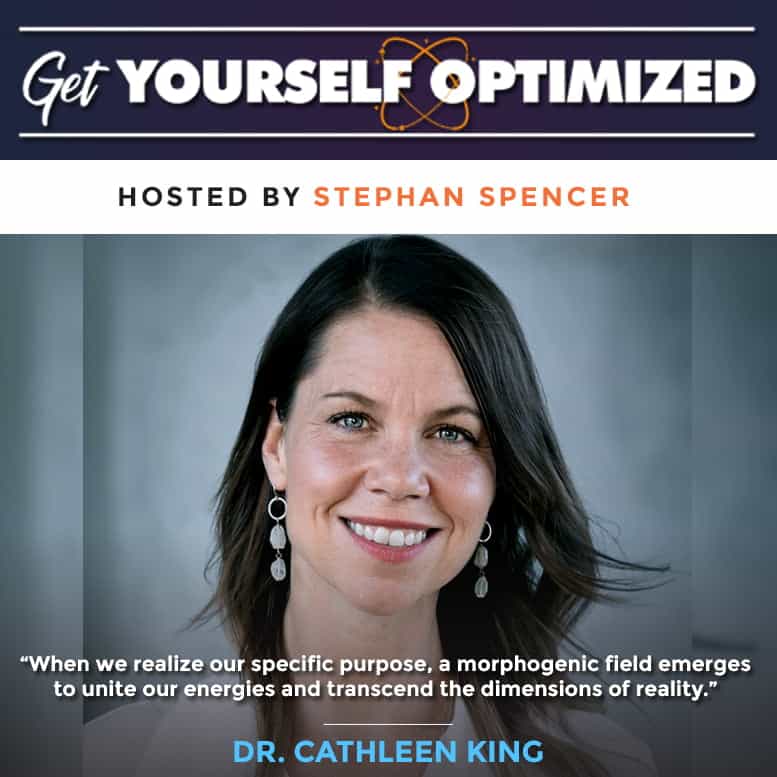In this Episode
- [02:03]An ambassador of hope, Andre Norman reflects on growing up in a domestic violence household and experiencing the busing crisis.
- [08:12]Andre shares how he ended up in prison for subsequent arrest and his experience of unjust sentencing.
- [15:44]How did Andre find forgiveness for his past experiences, and how he started mentoring and donating courses to inmates?
- [18:33]Andre tackles the mental impact of solitary confinement and how he survived it for two years.
- [21:05]Andre explains solving problems from different vantage points.
- [27:46]Andre recounts how he found faith and freedom after serving time in prison.
- [30:19]What are the things and experiences that Andre considers as gifts of being in prison?
- [41:33]How does unresolved trauma impact our mental health and well-being?
- [47:03]Andre describes his collaboration with Joe Polish in helping people escape addiction and trauma.
Andre, it’s so great to have you on the show.
It’s great to be here with you, man. It’s my honor to be hanging out with you.
Thank you. I appreciate you as well. I appreciate you as a friend and getting to know you through the Genius Network that we’re both affiliated with. I’m glad we finally put this podcast episode together after several false starts.
Timing is all the time.
Timing is everything and divine. We’re never too late. Everything happens and unfolds the way it’s supposed to. At least, that’s my belief.
I’d love to start by getting a bit more detail about your childhood because that started you down a track that was not good and led to a lot of pain and suffering for a number of people—you included, of course, if we could unpack what happened and how you see that childhood now in retrospect because you can only connect the dots looking backward.
I was born in Boston, Massachusetts. My mom married her high school sweetheart and had two kids. Then, her husband went to prison for robbing banks. She met my dad at a local hospital and had four more kids.
Life was great, six kids, mom, and dad. Everything was fine except for my dad’s habit of beating my mom. We go through these years of “domestic violence.” That’s the new name for it. In the ’70s, it was called “handling your household.” We go through years of domestic violence, and nobody’s going to come in and save Mom. It just wears on you.
Our lessons and life experiences can inspire others to believe in themselves and take on challenges and opportunities. Click To TweetThen, once we got old enough to leave the house, a.k.a. to go to school, it was phenomenal. We got to go to this building, there’s a building full of kids, and we got to play all day. Then, we ran into the busing crisis in the late-70s. It was forced busing where Black kids were sent to White schools and vice versa, and the city revolted. They would stand on the corner, throw rocks at the buses, and call us names.
I went home to my dad. I was like, “Who are these people?” I had never really met White people before. I said, “Why are they throwing rocks at me?” Nobody’s really thrown rocks at me before. I said, “What do these names mean? I’ve never heard of them before.”
My dad looked at me, I looked at him, and then he walked away. He didn’t know how to deal with what was happening to his kids. So now, we say to people, if you were my dad and I came home to you, or your kid came home to you tomorrow and said, ‘Hey, Mom and Dad, why are these people throwing rocks at me, and what do these names mean?’ what would you have said? What would have been your response to a seven-year-old son looking for guidance on the busing crisis and all that went with it?
I would say that not everybody is of the light, but everybody—even somebody who seems like a total sociopath—has had some light in them, so you have to try and see that light. But you have to maintain your boundaries. When somebody is hateful or unkind, you have to maintain your boundaries and don’t let people walk all over you.
It’s not like you can get off the bus and confront these people throwing rocks, but you can at least know that it’s not personal. It feels very personal, but it’s not personal. They’re labeling you and many others without cause and justification. It’s not fair. That’s what’s happening right now. That’s the way I might explain it but in seven-year-old terms.
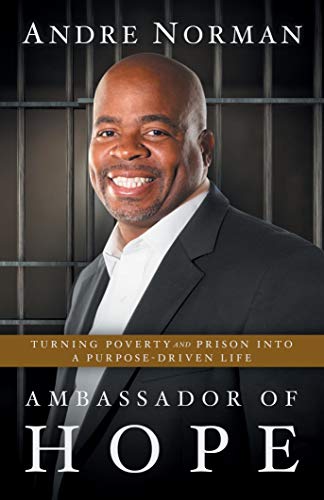
My dad didn’t explain it, so I always had to process it by myself. One day, the rocks started, and then one day, the rocks stopped. I guess they figured it out.
For my mother, one day, the beating started, and one day, the beating stopped. I came home from school, and she said, “Dad’s gone.” She got tired of the beatings, and she put them out. Since I have a single mom with six kids living in the city, we bounced around and went to a new school and new neighborhood, and I found out I couldn’t read or write.
They put me in a “dummy class” where all the kids who couldn’t read and write would put us at the end of the hall and close the door. That was going to be my lot in life. I was just going to grow up illiterate and dumb, and I didn’t find my way the best way I could.
Luckily for me, the teacher pulled me out of the dummy class in the third grade. She said I’m not a dummy. I just learn differently. She took the time to teach me my learning style and showed me that I could read, write, and count. I just had to learn it and ingest it a different way.
She taught me how I learned and how I understood things, and how I processed things that nobody had ever done before. For that reason, I came out of the dummy class and went back into regular schools and regular classrooms. We just push forward.
There were three lessons I learned as a young kid. One, it’s okay to hit people because if my mother can be hit, anybody can be hit. Two, I better protect myself because those kids threw rocks and names at me, and nobody came to help me. Three, I can walk out on anything. I can quit at any time. My dad quit on me, so why can’t I quit on something else?
As an eight-year-old kid, those were the lenses through that I saw the world. Then, as I went forward to third grade, fourth grade, and just being a poor kid, you don’t know you’re poor until you get around kids who have stuff, which was me in middle school.
The kids started making fun of me for wearing old clothes, dirty clothes, and not having. They just gave me a super hard time. As a result, I was just stressed out, and I didn’t want to go to school, but my mom made me go.
Then, I started selling marijuana after school just to make a couple of dollars. That $34 a day gave me enough money to buy clean clothes, pay for my own lunch, and not be a little welfare kid.
Also, in the sixth grade, a teacher, Miss Ella, gave me a trumpet and put me in a band. I played that trumpet all through middle school.

When it came time for high school, she pulled me aside and said, “I’m sending you to a magnet school so you can play the trumpet.” I said, “No, I want to go to the district high school with all my friends.” She said, “You go where your gift goes, not where your friends go.”
She made me go to the magnet school. When I got there, I joined a band. It was all good, and I was a frontline trumpet player until my cool guy friends told me that playing the trumpet was
stupid. Black folks won’t play the trumpet. You can’t go anywhere doing that. You need to hang out with us. You need to get rid of the trumpet or get rid of us.
At 14, I’ve been on my own almost my whole life. My friends were making me choose, so I chose my friends over my trumpet. When I gave up my trumpet, I gave up my passion, purpose, direction, and savior. I just had no purpose anymore and just drifted until I ended up in prison.
What did you end up in prison for?
I started out selling weed in the park, carrying guns to the park, and robbing people we saw in the park. I started robbing people who sold drugs.
That was my main thing because, from the sixth grade, I saw all these kids who made money selling drugs in the park. They had a lot of cash, and they weren’t that tough. I said, ‘I can take their money.’
That became my hustle, as they call it. I would rob drug dealers.
Wow. And you got caught, apparently. How did that happen?
Never be afraid to change your direction toward who you are meant to become. Click To TweetIf you keep doing it enough times, you’re going to get caught. Nothing lasts forever. I wasn’t the best robber. I just did what I thought was the best way to do it, and then I eventually got caught. I got sent to prison.
You get caught, you make bail, you get caught, and you make bail. One time, they don’t give you bail, and everything catches up.
I’m 18 years old, sitting in superior court, and the judge started reading off sentences. He said, “Andre Norman, for the crime of armed robbery, 7–10 years, armed assault with a shotgun, 9–10 years, armed assault with a shotgun, 9–10 years, armed robbery, ten years, armed assault, ten years, armed assault in a dwelling, 15 years, and armed carjacking, 15 years.” I had a gun charge, and he gave me five. They put me in a van, took me to a penitentiary, and then dropped me off.
Did you have a lousy lawyer?
No, he was actually a good lawyer. He’s just lousy with me. That’s the thing. I don’t want to say he was a bad lawyer. He intentionally didn’t represent me.
I eventually came home because of the case that he sold me out on. That’s what public defenders generally do for whatever reason. He determined that I was guilty and I should be sent to jail because while I was in the county jail, I went to him with two pieces of paper because I was charged with armed robbery and larceny.
I said, “Look, lawyer, these are two pieces of paper from different courthouses, but it says I stole the same thing.” In this court, it says it’s larceny, and I stole this item. In this court, it says armed robbery. I stole the same item. The item is listed in both places.
I know nothing about the law. I’m 18 and a high school dropout, but I know enough to say, is this double jeopardy? He looked me in the face and said no.
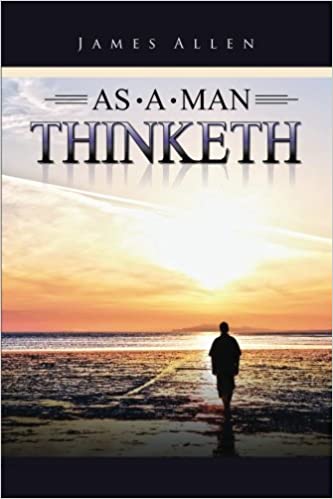
I subsequently plead guilty to larceny first. I went to trial for the armed robbery, and I was found guilty. Then, since I was on bail and I was scared to go to prison, I ran. While I was on the run, I picked up five more cases. I eventually came back, and that’s where I got all the time from.
Long story short, when I filed my appeal, the judge said in the appellate court that there was double jeopardy, and I had an ineffective lawyer, and they reversed my case. Had I pleaded guilty as I did in the District Court, I think I would have gotten probation.
On day one of the trials, my lawyer should have filed a motion to have my charges dismissed based on double jeopardy. We would have won the appeal, and I didn’t have to step one foot for one day in state prison. But my lawyer determined that he decided I should go to prison, not the district attorney, not the jury, and not the judge. My lawyer decided that I should go to prison, and he sent me.
When I came home from prison and started working with the governor, President, and Attorney General, he saw me on TV. He looked me up and called me. He said, “Hey, Andre, I just want to apologize for what I did to you.” I was like, “Man, listen, I’m not tripping.” He said, “Can we go to lunch?” I said, “I might trip on that one. I’m not ready to go to lunch with you, no.” I might be today, but then, that wouldn’t have been a good lunch.
He knew what he did. He had become a Christian and changed his life around. He wanted to make amends, so he called to tell me that he had done me wrong intentionally. He wanted to apologize and would I forgive him. I said, “Yeah, you sent me to prison for 14 years and nearly got me killed 100 times, but I forgive you because it does me no good staying angry at you. What you did, you did.”
It’s hard to see at that time, but everything is divinely set up for us. If you had gotten off of those charges and not gone to prison, don’t you think you would have ended up in a worse place?
Hands down, far worse off. I agree. Going to prison was good for me, but at the same time, it wasn’t his call. That wasn’t his job. Going to prison probably saved my life, so him being a bad lawyer saved my life. I accept the outcome, but it doesn’t justify his actions. He wasn’t working from his standpoint in tandem with God to help me become a better person. He sent me to prison because he wanted me to go. He shouldn’t be a defense attorney. He should have been a prosecutor, and then it would have made sense.
I’m not mad at him. Being mad at people takes so much energy, time, and focus. I can take that same time, focus, and energy and help somebody. It was a lesson. It’s a lesson that I share. That lesson and life experiment have now helped somebody else to think I have a chance.
The guards can’t hear the prisoners, and the prisoners can’t hear the guards. They’re arguing out loud, and people are getting hurt on both sides.
Somebody went through worse. I shouldn’t have spent a day in prison, let alone 14 years and 2 ½ years in solitary confinement, but I made it through, and I’m doing well. It’s not where you start. It’s where you end.
You certainly have the life experience and the credibility for somebody who’s done bad stuff in prison to listen to you like, okay, here’s somebody who knows the school of hard knocks as I do. Maybe I’ll listen to this guy.
We were at the county jail today. For four months straight, at least one was stabbing a day in this place. The sheriff called me and said, “Andre, we need you to come in and help us with this violence.”
I’ve been in prison for 2 ½ months, talking to gang leaders, victims, and staff. Today, we had our biggest meeting, where the chief of the jail and the leadership met with the gang leaders. We came up with an understanding of how we’re going to stop people from being stabbed in jail.
I wouldn’t have been able to do that without the insights and experiences that I went through in my own life. It is paying off, even though I don’t recommend this path to many people.
When you say you were just in prison, you were just in jail to visit, right? You’re invited by the police department and the sheriffs.
I won’t go without a visitor’s pass.
That’s good. What work do you do there? Do you give presentations and work one on one mentoring inmates?
Mainly mentoring inmates and staff because the prison staff and the prison inmates aren’t there to see themselves as enemies just because. Because I see you as my enemy, I can’t hear good from you. I can’t hear anything positive from you. I can’t hear a warning from you. I can’t hear from you.
It’s the same thing the other way. The guards can’t really hear the prisoners, and the prisoners can’t hear the guards, so they’re both in there being deaf. They’re arguing out loud, and people are getting hurt on both sides.
When I come in, both sides can hear me. I become the mediator and translator between the guards and the prisoners, with the goal being decreasing violence inside the facility and then extending that to the community and decreasing violence in the community.
Are you working with a nonprofit like Defy to help these prisoners, or are you just doing it on your own?
I work with the Academy of Hope, which is a nonprofit that specializes in gangs’ in-prison violence, and then we partner with a company out of Texas called Aventiv, which provides these things.
This is a prison tablet. There are 650,000 of these in prisons and jails. As fast as I can run, this goes faster. I can talk to 650,000 people here, versus I talked to maybe 50 people today. I can mentor at scale, collaborating with the Securus tablet. I can be in Indiana tomorrow, and I can be in Washington State, California, Texas, Michigan, and New York all at one time.
How would somebody who’s listening and has some online course on entrepreneurship, Internet marketing, or something get their course onto that tablet for thousands of inmates across the country to learn valuable skills if they want to donate that online course to these inmates?
If anybody listening or somebody they know of who’s listening wants to donate a book, course, music, meditation, anything that can be an audio, video, or even digital paper, or digital books, they can just send me an email and say, ‘hey, Andre, I want to donate this book. I wrote a book. I want to donate my book.’
When I say donate your book, it’s only going to be shown on this, meaning the only way the person can see your book, course, or music is if they have to be in prison and have one of these. If somebody jumps over the wall and they have this in their pocket, it doesn’t work outside of the prison because the server is inside the building.
They would just send me an email and say, hey, Andre, I want to donate this song, book, course, podcast, movie, play, or whatever the thing is. I just send them a basic contract saying, ‘Hey, your stuff is going to be given for free to prisoners that have complete access as long as you want to allow it. If you decide a year from now, I don’t want them to have access, and you send me an email. Andre, I don’t want them to have access anymore. I’ll take it down.’
I hope somebody listening will take advantage of this opportunity to spread some light in the world.
Let’s talk for a minute about your experience being in solitary confinement. Two and a half years seems like an inordinate amount of time to be put into solitary. What happened to get you there, and what happened in there that was a gift in disguise?
What happened to get me there were gang fights. I would fight and attack other prisoners, and inside a prison is punishment. It’s not like it’s legal to attack people in prison. It’s not legal. If I stab you at the bus stop, it’s a crime. If I stab you in prison, it’s a crime. If I punch you in the face in the supermarket, it’s a crime. If I punch you in the face in the prison cafeteria, it’s a crime. It is not okay or legal to beat up or harm people in prison. When I would fight and attack people, it is still a crime.
I attacked some people one day, and my punishment inside the institution is like a mini courthouse where they take you to court inside a prison, and they say, ‘Okay, for attacking these people, we’re going to put you in solitary confinement, a cell by yourself.’ It can go anywhere from 1–10 years. They gave me 2 ½, and I went. They put you in a cell in the basement with no sunlight and air, just sitting this out in a dark room for 2 ½ years. That’s your institutional punishment for violating institutional rules.
When they put you in there, 24 hours a day, you’re locked in a cell. You get to go outside five days a week for one hour, but I personally hate the cold, and I’m from Boston, so when it snows, it turns into 24 hours for me. From late September or October until spring, I was 24 hours in my cell because I was not going outside standing in five feet of snow freezing with bad clothing on.
While you’re in there, initially, you really don’t understand the depravity. We as humans forget about punishment, criminality, and what’s just. As humans, we’re not designed to sit in a tomb for 2 ½ years. It goes against mental makeup.
I go back to the Garden of Eden where Adam and Eve were both naked, walking in the grass barefoot and sleeping on the ground naked, which is the way God designed us to be fit to Earth, body to Earth. To put a man in a cement tomb is a whole other story. Justified or not, I’m not talking about the justification of it. We’re talking about the humanity part, the nature part. By nature, we’re not designed to be in a concrete box without sunlight for 2 1⁄2 years. It does something to your spirit, body, and mind.
By nature, we’re not designed to be in a concrete box without sunlight. It does something to your spirit, body, and mind.
Around me, I’m watching what I call strong, tough guys who’ve been down here maybe a year ahead of me or eight months before me snap. They’re rubbing feces on themselves. They’re setting themselves on fire. They’re hanging themselves. They’re just screaming in the middle of the night, screaming at the moon, as we would say. This timeline, eight months, nine months, ten months a year, people just snap, and they would lose it. They’re looking at a blank wall all day, every day, and their mind would give in.
I got nervous. I’m like, am I going to be next? When I first moved into my unit, there were 15 cells, and nobody took medicine. By month six, half the population is taking medicine from the nurse. I’m not talking about cold pills. They’re taking psych meds. Somebody tends not to get mental health visits because they’re smearing feces on themselves, and they’re hammering themselves.
I’m like, and this is a prison tough guy. Now, he’s down here banging his head against the wall because he can’t cope with being locked in this tomb.
What I did to combat that is I ended up with a newspaper. I had read the newspaper front to back ten times. Then, I started solving the problems in the newspaper as a way to keep my mind active. I didn’t look at the wall. I read the paper.
Ukraine and Russia had a war. Okay, if I were the President of Ukraine, what would I do? If I were the President of Russia, what would I do? If I were the UN, what would I do? If I were the President of the United States, what would I do? If I were a person who lived in Ukraine, what would I do? If I were a person from Russia, what would I do? If I’m from one of the bordering states or countries, what would I do? I’d solve that problem from 10 vantage points.
I go to the next page. Homelessness is impacting this part of the city. If I was the mayor, what would I do? If I was homeless, what would I do? If I was a local business and a local patron. I just did this.
There are probably 500 problems in the paper. I would sit there and solve the problem from every different vantage point I could. That’s what I did. I might get a newspaper once a month. I’d hold that paper and try to solve every problem. It just kept my mind moving because otherwise, that gray wall starts shifting and talking to you.
I just kept solving the problems in the paper. There was a guy next door to me named Junior Chung. I’d go to the wall, and for some time, they would open the door, so I could talk through the bars. I would tell him the problem and the solution.
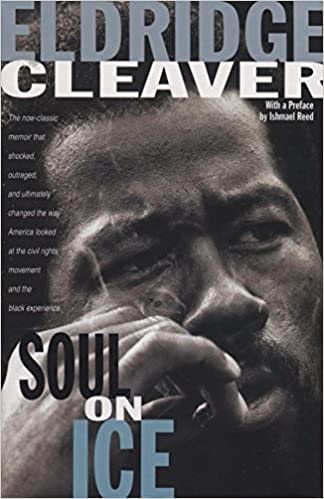
Now, Junior was on heavy medication. He had heavy meds and psych issues. But when Junior could understand my problem and solution and have a conversation about it, I knew I had a winner. There are a lot of super-smart people, but Junior was legitimately crazy. When he could understand it, I knew anybody could.
That’s how I would test my theories. I’d go to Junior. If he didn’t get it, I’d go back to the drawing board and come up with another solution. Once Junior understood the problem’s solution, I had a winner. I did that for almost two years. After that, I just solved problems and ran them by Junior.
When I came out of solitary towards the end of my solitary time, I realized that I had problems. God spoke to me because I went out to the rec yard one day, and I was going to attack some prisoners again. I hadn’t changed my actions for two and a half years in solitary.
Joe and I say this, denied access is not treatment. You locked me in a cell by myself for 2 ½ years. It didn’t make me better. It just didn’t give me access to attack people. When I had access to attack people, that’s what I was going to do.
Before I could attack them, God told me, “Don’t make this life choice.” I argued. I said, “God? There’s never been a God in my life. Why are you talking to me?” God said, “Andre, life choice. Don’t do this.” I said, “My mother got beaten, they threw rocks at me, and they called me names. You never showed up.” I told Him all the times He didn’t show up. He just said, “Life choice, Andre. Make up your mind. Who are you going to serve? What are you going to do?” “This is the last time. I can’t save you after this.”
In the end, I didn’t attack anybody that day. I went back to my cell and sat out. I’m still like, if I can’t be a psychopath and attack people, what’s the point of being in prison? It didn’t make sense anymore. I said I don’t want to be in prison. I want to be free. I’m 6 ½ years into my sentence, and the first time I ever uttered the thought, I wanted to be free.
I looked around White, Black, Spanish church guys, Muslims, kitchen workers, ballplayers, and chess players, and everybody got free. Everybody came back. I said, free doesn’t work. I don’t want freedom. I want to be successful because successful people don’t come here.
I came up with a plan to go home, go to Harvard University, and become successful. I made the dumbest mistake ever. I told my friends. My friends were like, “You can’t be it.” I said, “Why not?” They said, “You’re Black, you’re a gang member, you’re violent, you can’t read, and your family’s poor.”
They told me all the reasons I couldn’t. I didn’t even really hear them talking to me. What I heard and thought were my friends in the ninth grade stealing my trumpet. It was the same conversation just 15 years later. I said no. I let them go, I went back, and I designed my own plan. I said I’m going to believe in myself even if they don’t. I designed a plan to go from maximum security segregation to Harvard University.
Let’s talk a bit more about talking to God. There is a moment where you could have
potentially killed somebody in prison, and God told you, don’t cross this line or something to that effect. Have you tried to foster that personal relationship with God further to get more guidance than just don’t cross this line, or did you only hear His voice that one time?
I heard His voice that one time, and I listened. Then, I changed my direction as far as what I wanted to be in my life. My purpose was to be the top gang leader in the prison system. Now, my new purpose was to go home, be successful, and go to Harvard University.
As I was walking this path going toward Harvard, I started doing things differently. I’m going to school, being kind, reading, being thoughtful, being helpful, and not attacking people. I used to be in a unit. If you came to me and said, ‘Hey, Dre, I got beef with these guys,’ I’m like, ‘let’s tear the dorm out.’ Now, because I need to go to school tomorrow, we can’t tear the dorm up because if we tear the dorm up, we’re going to be locked down for a week. I can’t go to school. No tearing the dorm up.

It was selfish, but it was helpful to a lot of people. I started off as me being selfish, which turned into my understanding that I’m really helping people. My selfishness of wanting to go to school and not people being attacked, people actually were doing better. Then, I started seeing it and realizing, oh, I did that. I helped that person. I have a voice.
I followed my voice in helping people. I followed my voice in hurting people. I didn’t know there was a voice going the other way too, and I realized I had a voice in being able to help people. I stayed on that track.
It was June 12, 1999. I went to a Christian service at the Catholic Church at the prison, and I decided to go to confession. I went to confession for about 1 ½ hours. It was my first time ever. It was an easy 1 ½ hours.
In the end, the priest, Father Martin from St. Basil’s Salvatorian, did the sentence prayer, and I accepted Jesus as my Lord and Savior. It was phenomenal. It was three months after I had gotten paroled. I got parole in April of ’99. I went into service in June of ’99.
The first thing God told me was, ‘I gave you parole.’ You wouldn’t have accepted it unless you thought you got it on your terms. The first thing He told me is I gave you parole. Had somebody said to me before I went to the parole board, “If you pray to God and take a knee, I guarantee you parole, I’d be like, “No, that’s not how I got in here. It’s not how I’m going home.” Everybody said, “Hey, man, if you just accept God, I guarantee you get parole.” I’m like, “No, I won’t cop out because I need a favor. “
I went into it at what I thought was on my own terms as my own man and made my own pitch. The first thing He revealed to me when I got saved was I gave you parole. Even though you were stubborn in who you were, I did that for you. I saw it, and I heard it.
I should have gone home in April. I was stuck being held by the facility, and it was probably mid-August. I’m still there. I’m fighting to get my release. They’re blocking my release. This is a lot of stuff.
Instead of complaining, I just kept helping people in jail.
I was sitting in my cell one day. I said, “God, I hate this place, but if this is where You want me to serve, I’ll serve.” I kept helping people in jail. Instead of complaining, I just kept helping people. He left me there for another four months, and He let me out in His time. I got out on November 15.
I was mad that they held me for eight months, but looking back, had I been released in April, I would have gone home. It would have been nice weather. I would have been out in the street wanting to be seen.
Summertime was coming. It’s my first summer in 14 years to be outside. I’d have been out that summer hanging out and being cool, catching up on stuff I missed.
Come September, when it was time to go to college. I would have had seven months of being in the street. I might not have gone. I got out on November 15. Two weeks later is Thanksgiving, and three weeks later is Christmas. I’m in college on January 4. That short window ensured that I made it to college. I would have been happy had I gotten out in April, but I probably would have failed. Those extra eight months in prison ensured that I made it to college. Sometimes, a blessing is a blessing even though you don’t see them like it.
Yup. My wife, Orion, says that there’s always a gift. Sometimes, the bow is on the bottom, though.
It’s been almost 23 years. I don’t even miss those eight months because of those eight months I spent serving.
What did you do? What were some of the things that you did in those eight months that changed people’s lives who were in jail with you?
Because I was a gang boss, I could mediate disputes between people. If you wanted to hurt or kill somebody, you needed me to sanction it. If you wanted to attack somebody, you needed someone to sanction it. If you want to rob and hurt somebody, you need it to be sanctioned.
Sometimes, a blessing is a blessing even though you don’t see them like it.
If it was ever up to my preview—which it was a lot of the time—I would look for non-violent resolution versus violent resolution. There were people who saw me go to programs every day. Andre got his parole in April. He’s here in May, June, July, August, September, and October. I’m world-famous. Everybody knows me and the fact that I’m still there. I’m not crying, complaining, or screaming at anybody. I’m doing it the right way. I’m just accepting that I made this bed.
That’s the thing people fit. I made this bed. I put myself in prison. Nobody elected me using a vote. Notwithstanding my attorney, I did things that generated me to be sent to prison. I did things while I was in prison and made a lot of people mad at me. They didn’t pick on me just because. They picked on me because I picked on them first. We can say they should be bigger people and professionals, but they’re humans.
People saw my witness of staying in character, staying integral, still going to service, and still being positive. When I finally went home, I used to go to mental health counseling. I went to GED, self-help groups, and services.
The day I walked out, everything I had done prior became real because people are like, ‘man isn’t real. He’s playing.’ Until I physically walked out the door, people said it wasn’t real. But when I walked out the door, my counselor told me enrollment in mental health services skyrocketed, enrollment in GED skyrocketed, and enrollment in self-help groups skyrocketed.
Everything I had done became the thing to do because if it weren’t for Andre—and he’s ten times worse than any of us—we need to go. My presence in these places and spaces gave other people permission to do the same. Most gang bosses don’t go to school, counseling, or church. By me going, I gave other people permission to go.
You were a model. You didn’t just tell people, here’s what to do, but you modeled the behavior you wanted to inspire people towards.
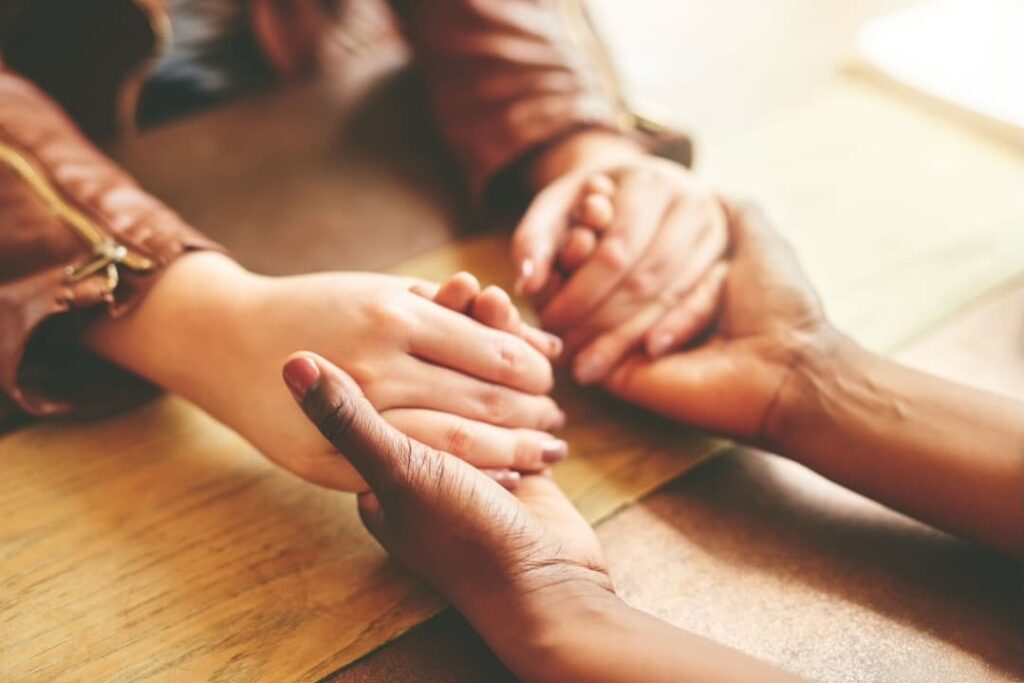
Definitely.
What were some of your favorite books that you read or were most impactful when you were in prison?
As a Man Thinketh was my number one book. If I had to pick just one book on the planet Earth, I would say As a Man Thinketh by James Allen. Every time I read it, it got deeper and deeper and more insightful.
There are a few books by Epictetus I was reading. It was along the lines of As a Man Thinketh but a little bit deeper. Other books that I read that I really liked I read All the Black novels, Soul on Ice, Soledad Brothers, and Malcolm X. I read all the Black novels around folks.
I was reading it from the standpoint of not historical. These are positive stories of people who’ve been through trauma and have come out successful. I read the stories of people that I felt walked some of what I walked and then came out the other side. Some of them did, and some didn’t. Some of the folks died in prison, but they fought their fight. Malcolm fought his fight. The Soledad Brothers fought their fight. Eldridge Cleaver fought his fight.
I was reading books. I learned to read some books, but I didn’t like the author. But I was able to separate the author from the message, which was new for me. Before, the author and the message were one. The messenger and the message are the same things.
I read the stories of people that I felt walked some of what I walked and then came out the other side.
I was able to say, I like the message, but I don’t like the messenger. That was a subtle thing. I don’t want to say the book that I actually despise. I don’t want to throw salt on the man, but that book prompted me to write my book. It wasn’t a fun book.
Books I liked made me pick up a pen. When I read a book about a prisoner, I detested the man. I’m like, ‘I am nothing like this man. How dare he write a book about us?’ It made me write my book. I read all the Eldridge Cleaver and Smokey Robinson. I read all of them and never thought about writing my own book until I read somebody I didn’t like and said, I got to tell my story. That’s what I did.
Who from history do you most feel inspired by or most want to model?
Harriet Tubman. If I had to pick one person from history that actually exemplifies what I wish I could be, it’d be her. She wasn’t the smartest, but she listened to God. He got into her life, and when she got what she thought she was deserving of, she didn’t get the people behind her. She went back at her own peril and tried to free people. It wasn’t just physical freedom. It was mental freedom as well. In her saving as many people as she could, she just kept going to another level.
The craziest thing for me is we read the story, read the history, and see the movies. I really learned probably three weeks ago that she died in 1913, which means she overlapped my grandfather being born. For me, I was like, ‘Wow, Harriet Tubman and my grandfather were alive at the same time. It makes it closer. Even though I never met my grandfather, he lived in the same time span that she did. He was born in 1905. She died in 1913. It just made her history that much more real and relevant. The fact that she just was willing to keep going back.
The book, As a Man Thinketh was published in 1903. That was around that same time as well.
James was my guy. That is literally my favorite book.
There’s another book from that era that has been transformational for me. I think you’d enjoy it. I might have mentioned it before on the podcast, so forgive me, listener, if you’ve heard this one before. But if you haven’t picked it up and you’re hearing it again, that’s the cue to get this book.
Books I liked made me pick up a pen.
It’s called The Game of Life and How to Play It. It was published in 1925. The author was Florence Scovel Shinn. That book is just incredible. She’s like Neo from The Matrix. The advanced thinking and view of reality are incredible. She’s also very accessible in her writing style. Even though she’s quoting Bible verses here and there, it’s not overly proselytizing, overly Christian, or anything like that. It’s accessible for people who have different religions or maybe even no religion. I recommend it to everybody. It’s phenomenal.
It will be ordered as soon as we finish this podcast.
You are a massive action-taker.
Jeff Bezos, salute. That’s my guy. He made it so easy. Cameron yelled at me one time. Cameron’s new book came out. I get in my car, drive to Barnes & Noble, get his book, pick up my phone, and take a video. “Hey, Cameron, I got your new book. Support.” I sent him the video.
My phone rang seven seconds after he got the video. He said, “Andre, don’t you ever go to Barnes & Noble again. Don’t you ever leave your house and go buy a new book. Use Amazon. You just wasted 45 minutes of your life. You could have ordered your book on Amazon in 30 seconds, and you will have the other 43 minutes to do whatever you need to do.”
I’m like, “Okay, man, but I bought your book.” He’s like, “Ever go to Barnes & Noble.” He started me on Jeff. Jeff Bezos, thank Cameron Herold for me spending my money with you because I’ve never ordered on Amazon before Cameron Herold yelled at me.
That’s funny. I personally like going on tribes and having time to contemplate or listen to podcasts. Some of my biggest epiphanies have come from that, so I enjoy the convenience of buying from Amazon, but I also enjoy the headspace and the time to reflect and communicate with God and my spiritual support team while I’m driving somewhere.
I’ve been to Barnes & Noble again, but to leave my house for the sole purpose of going to buy his book, he’s like, no, that’s a no-go. If you’re in the mall and you go to the store, fine. He’s not against Barnes & Noble, but I left my house for the sole purpose of going to buy his book and driving back home. He’s like, that’s a no-go.
Learning to separate the author from the message allows us to evaluate content with an open mind and fair judgment. Click To TweetHe’s funny. Let’s talk about the whole trauma, addiction, violence, depression, and all that cycle that happens and how to break out of it.
I personally have never had a drug addiction. I’ve had anger addictions, bad decision-making addictions, and quitting addictions where I quit on everything except for negatives. What happens is that people have unresolved trauma. Unresolved trauma becomes a continuing trauma, which now needs some cure or something to become manageable.
I have this unresolved trauma from whatever it’s from or whatever it’s based on, and if it’s not treated and it sustained long enough, now it needs some forced medication or self-medication so I can cope with it. I might be smoking, drinking, overworking, or whatever the thing is that I do to cope with the trauma that I have. Now, the coping mechanism becomes addictive, and I’m hooked on heroin, opioids, weed, drinking, or whatever I’m hooked on to deal with the underlying trauma.
Now, people are like, ‘Oh, he’s an addict.’ They’re trying to fix the addict in me, but the real reason I’m an addict is because I have unresolved trauma. My addict becomes a criminal, so now I just become a criminal who happens to be an addict, and I’m in jail. I’m a prisoner and an addict, but nobody’s talking about my trauma. They’re trying to fix my criminality, substance abuse, and addiction but without talking about my trauma.
It just spins into that hole. Now, I am not going to school, I’m not going to college, I’m out of prison, I’m uneducated, I’m a former felon, and I’m an addict. The person who comes to fix me is looking at the surface. He is a former felon, addict, prisoner, and uneducated. They’re going to try to fix that.
Treating the symptoms and not the issue is always a problem.
Until you actually find out why all this stuff exists, you will never get better. That’s generally the people that we’re dealing with. Whatever the thing is that started them on that path is the thing that can take them off that path. Treating the symptoms and not the issue is always a problem.
A lot of folks who aren’t addicts, former felons, or things that their kids or their loved ones become don’t know how to treat something that they don’t understand. ‘Oh, you got a great life. You shouldn’t be doing that. Oh, your wife loves you. Oh, you got money. Oh, you got a degree.’ ‘You got X’ or ‘You got Y.’ ‘I gave you a car. Why are you doing drugs if I gave you a car?’
It’s not the stealing of the car. It’s not even the doing of the drugs. It’s not out-of-control behavior. It’s the unresolved trauma.
For years, trauma-informed care was something that people didn’t discuss. Everybody’s at the bottom of the ravine trying to sew people up instead of putting up a guardrail. I was like, oh my God, here’s another broken leg. You’re fixing the broken legs, but the guardrail is still there.
I was at the Grand Canyon not long ago. It scared me beyond measure because there were no rails at the Grand Canyon. You could walk all over the edge and just fall in. There’s nothing stopping you from falling to the Grand Canyon.
I said to myself as I looked from 30 feet back from the edge. This is enough for the Grand Canyon. I can see it from 30 feet back. I was okay missing whatever I was missing in that little 28 feet. But the thing is, I said to myself, at least ten people a year have fallen to this thing, either it being too nosy, they’ve been drinking, they’re on some substance, they’re tired, or they misjudge it. At least ten people a year fall into the Grand Canyon. There are no rails anywhere, and it’s the slope.
I said, ‘Oh no, I know enough to say get away from the edge. Don’t go 30 feet near the edge.’ Most people say, let me see how close I can get without falling. Oops, I fell.
With trauma and addiction, people are not looking at the root cause of the person’s behavior. They’re looking at the outline of their behavior. Whether it’s workaholism, there are 1000 addictions. Whether it’s overeating, overworking, just drugs, alcohol, or depression, somebody’s depressed for a reason. Something happened to create a depression. Depression is a response to an emotion and a circumstance that happened in your life. Nobody wakes up and says, ‘I feel like being depressed today.’ It’s a reaction to a triggering event.
Become quick to listen and you’ll be able to see the light in others. Click To TweetNot ‘let me help cheer you up.’ It’s ‘let’s find out what got you depressed.’ Most people want to cheer you up versus find out why you’re in this state because it’s easier to try to make you smile than to walk through the pain with you.
You’re good at walking through the pain with people. You help a lot of people get on the phone, and then you fly on an airplane to wherever they are and help save some guys, gals, sons, or daughters from self-destructing and going down a terrible path that they won’t be able to recover from.
You have this role with Genius Recovery, where you help that nonprofit that is helping people with addiction and trauma to get out of that cycle so that they can lead a happy, productive life.
Can you give us an example? Feel free to anonymize it, of course, so that you’re not sharing any confidential information, but can you give an example of a success story of somebody that you helped save from the brink?
First, Joe Polish is my little brother now. When we first connected, it was based on the fact of helping people. It’s like you met somebody with your name. If I meet anybody named Andre, we’re instantly best friends just because we have the same name. When you meet someone with the same birthday, you’re instantly best friends. If you’re out of town and you meet somebody from your hometown, you instigate a conversation.
My purpose in life is to help people escape addiction and trauma.
When Joe and I met, we had the same purpose in life, to help people escape addiction and trauma. When we met, we instantly became best friends. Joe gets probably 10,000 calls a day for 10,000 different reasons, a lot of which are addiction-based, suffering, and depression. Regardless of whether somebody who’s wealthy or not wealthy, they’re just his friend.
I became his arms and legs to actually show up places and actually help people in real time. He can provide a lot of services, but he has a schedule. My schedule is a lot more flexible, so when he can’t go, I can. When he doesn’t have time for the phone, I do. When it’s for something that’s beyond his scope, like the prison, then I can step in.
We’ve been in this tandem for the last 4 ½ years of actually saying, how can we help people? How can we design and create things that make people’s lives better? Because his saying is you can’t punish trauma out of somebody. You can’t mistreat somebody for being better.
We have the same philosophies. We just come from different worlds, but we came from different worlds with the same heart. When we got together, our hearts just lined up and said, hey, let’s go.
That’s my little brother. I tell people I’ve been home for 23 years. I’ve been the most behaved guy you can imagine, but don’t mess with my little brother because it wouldn’t be a good day for you. You don’t want to see me angry.
But I’m helping people. We’ve gotten calls where members who just started drinking got stuck on that drinking binge. They would call. People I just meet with at the meetings or this casual conversation, we might go to lunch or dinner. “Hey, Dre, man, I’m stuck. I’d fly to their city, go sit with them, stay at their house, and just stay with them.

The key to helping people transition out of trauma is listening and being present. It’s not a great idea or a wonderful speech. It’s being present, being attentive, being ready, and helping them get ready.
I went to members’ houses and sat with them. I’ve had people call me about their kids. ‘Hey, Andre, my kid is drinking too much. They’re doing crazy drugs, and I can’t stop them. I don’t understand it because I didn’t do them. ‘
I’d get on a plane, fly, and go help. We had one girl who had a conference, and the mom was there. Mom says the daughter got drunk, got high, went out on the highway, and flipped the car upside down as fast as she could to try to kill herself. She’s at the conference. She’s like, ‘What do I do?’ She gives me the information.
I go to Helena, Montana. I’ve never been to Montana before. I met with the girl. She’s a teenager bullied and mistreated at school. I sat with her and spent time with her. Within 48 hours, she was on a track back to school, super happy about life. It couldn’t be a better day.
We actually met at the airport. In Helena, there are a lot of restaurants. We went to this gas station burger spot. We go in, it’s a Friday night or whatever it was, and we sit at our table. The whole place is full. Her high school where she used to go to was in there. All the kids in high school this is where they go.
What I did was I paid for all the football team’s food. I told the waitress to come over. I said, give me their bills. All the kids who played on a football team, I paid for their food. When they went to pay, they said, ‘No, he paid for you.’
I’m the only Black guy in Montana, so I kind of stand out. They’re like, and there’s a whole bunch of us. Where did he come from? They all came over to the table. As they were leaving, they thanked me. I said, “Oh, no, she paid. It was her idea.” All the kids thanked her as they walked out.
Wouldn’t you know those were the people that were bullying her at school? The same people who went to stop and say thank you were the same people with whom we bought dinner for. They had to acknowledge her in a positive. Not only did they acknowledge her in a positive, which was reassuring for her. They now say she has somebody to back her up.
Nobody’s always scared of their parents because they don’t know. Anybody’s parents, I didn’t picture. They’re a zero-sum total. Now, this is a 6’2″ Black guy with a hoodie on sitting in Montana, and he’s with her. What does this mean?
He’s like, ‘Okay, well, who’s this guy, and why is he with her?’ It makes you pause before you mess with her again. ‘I’m not worried about you calling your mom, but you calling that guy is different.’ I might have been the first Black guy they saw in their lifetime.
How was the girl doing now?

We went out the next day and went shopping. I said, “We’re going school shopping.” I took her
shopping and bought her a whole bunch of clothes. Girls love to shop. That’s one of my habits. I shop. I don’t drink or smoke. I shop.
We went shopping and bought all these clothes. I said, “You got to go to school now. You got school clothes to wear.” By the end of the second day, she was excited, on fire, and back in school. She finished high school, and now she’s doing fabulous.
That’s wonderful.
There was no one thing said. It was being present, and it was having the mindset to listen and just feed the right people. I fed the right people. I could have just talked to her and ignored the room full of eyes, but something told me—the voice—to pay their bill. I paid their bill.
That’s the voice of intuition.
It was the exact people who gave her torture in school.
Amazing. One last question here. I’m going to throw you a curveball. Have you ever thought that maybe your life was planned out for you by you and God, and you just didn’t remember it? All the different people that you were going to meet and have an impact on their lives negatively or positively and vice versa, like that bad lawyer was all pre-arranged and all set up so that you could step into the person that you truly are. What are your thoughts about that?
I believe every life has been scripted prior to it happening.
I believe every life has been scripted prior to it happening because when I read the Bible, Jesus’ life was clearly scripted before. He knew what was happening before it happened. He understood the purpose, beginning, middle, and end. He understood the whole thing, which meant he had sat with God at some point and added discussion about exactly what he was supposed to do and how his life was going to go from beginning to end.
That’s clearly stated in the Bible that his life and steps were pre-set, and he knew the steps. It wasn’t like he was trying to figure it out. He knew the steps to the point where he told Judas, ‘Do what you’re supposed to do because I got someplace I got to be. I need you to do your part, Judas.’ He’s like, ‘No, Judas, do your part because without you doing your part’ (my bad lawyer), ‘I can’t do my part, which is to be crucified, gone, and rise up.’
You need a bad lawyer, Judas, and the different people who have been scripted into your life to play their roles so you can get to your end goal and purpose of being here. If Jesus’ life was scripted, and they say that we are an image of God, then every last life on this planet is scripted. If He did it for His first son, why would He not do it for the rest of His kids?
Powerful stuff. There’s a book I love called The Alchemist. It’s written by Paulo Coelho. In that book, I learned about the Arabic word maktub, which means it is written. Maktub is in the Quran. My understanding of it is that it’s a universal truth that everything is already written.
It’s called Maktub: A Book & A Word That Changed My Life. It’s an article written by Kenny Soto. It gives a good explanation of that concept and also encourages anyone listening to either read or listen to the audiobook of The Alchemist. I just found it incredible. It’s just a great, great book.
Also, another thing too, Andre, if you feel called to order that book from Amazon or to listen to the audiobook—which, by the way, is narrated by Jeremy Irons, the actor—fantastic narration. I listened to the audiobook. I didn’t read the book. The Alchemist is amazing.
The other thing I’d recommend for you, Andre, is the episode of this podcast where I interviewed Vasundhra Gupta. We spoke about soul contracts. I think that’s going to be an enlightening episode for you. If you got the time to either listen or read the transcript of that episode, I think that there’s some treasure in there for you, Andre.
It’s the “bad people” who are now agreeing to do the good things.
I think very highly of you. I’m grateful to have you in my life. I love you like a brother. You’re an inspiration to many, and you’re out there doing the work. You don’t just preach the ideas. You model them for many, many people. It’s amazing what you do.
Today was a breakthrough day. It was probably your energy. That’s why I was led to this. We had a breakthrough today. We have all the gangs in the jail who are agreeing to a truce of no stabbing each other, which is phenomenal, going from one or two stabbings a day to now all the guys saying no more stabbings.
That, to me, means that whoever’s son or daughter walks in there tomorrow is not going to be stabbed. Whoever’s son or daughter walks into the mall is not going to be raped. Whoever’s son or daughter walks into the mall is not going to be jumped by a gang of 10 guys and beaten just for fun.
We’re changing that dynamic. It’s the “bad people” who are now agreeing to do the good things. We had such a great day. It is 6 PM my time. I’m going back tonight because I don’t want that energy to fade. I left not early, but I left quickly to come here so I could do this. I’m like, and I can still go back. The jail is still there.
Not only can your people send content in whatever format. If they ever want to come to jail in person, witness, pray, talk to, mentor, see what it’s really like, see lives changed, and see lives that need speaking into, they can reach out. All they have to say is, ‘Hey, Dre, you’re in Atlanta. When can I come?’
It’s almost anytime. All they need is a driver’s license or a state ID from wherever they’re from. They can come on down, come to jail, and change a life. Oftentimes, I tell folks it’s not what you say. It’s that you showed up.
Half of it is showing up, for sure. Thank you, Andre. This was a great episode. I’m really glad you were here for this. Thank you for being so vulnerable and open about your history and how you’ve been able to turn lemons into lemonade and anger into love.
With the help and guidance of the Lord our God, anything’s possible.
That’s true. Thank you, Andre, and thank you, listener. Go out there and spread your love with the world. We’ll catch you in the next episode. I’m your host, Stephan Spencer, signing off.
Important Links
Andre Norman
LinkedIn – Andre Norman
Youtube – Andre Norman
Instagram – Andre Norman
Facebook – Andre Norman
Twitter – Andre Norman
Academy of Hope
As a Man Thinketh
Ambassador of Hope
Maktub
Soul on Ice
The Alchemist
The Game of Life and How to Play It
Vasundhra Gupta – previous episode
Cameron Herold
Eldridge Cleaver
Epictetus
Florence Scovel Shinn
Genius Recovery
Harriet Tubman
Jeff Bezos
Jeremy Irons
Joe Polish
Kenny Soto
Malcolm X
Orion Talmay
Paulo Coelho
Smokey Robinson
Vasundhra Gupta
Aventiv
Defy
Genius Network
Soledad Brothers
Maktub
Soul contracts
Saving Lives Through Leadership
Get out Of The Confined Places In Your Life
How to Survive in Maximum Security Prison
Most Violent Offenders – Academy of Hope
Checklist of Actionable Takeaways










 About Andre Norman
About Andre Norman
Andre Norman’s challenging childhood led him to be sentenced to over 100 years in prison. While in solitary confinement, Andre had an “epiphany” and decided to turn his life around. After serving 14 years in prison, he is now known to many as “The Ambassador Of Hope.” Andre travels around the world to serve as a mentor for so many in need.
Disclaimer: The medical, fitness, psychological, mindset, lifestyle, and nutritional information provided on this website and through any materials, downloads, videos, webinars, podcasts, or emails is not intended to be a substitute for professional medical/fitness/nutritional advice, diagnoses, or treatment. Always seek the help of your physician, psychologist, psychiatrist, therapist, certified trainer, or dietitian with any questions regarding starting any new programs or treatments, or stopping any current programs or treatments. This website is for information purposes only, and the creators and editors, including Stephan Spencer, accept no liability for any injury or illness arising out of the use of the material contained herein, and make no warranty, express or implied, with respect to the contents of this website and affiliated materials.
LOVED THIS EPISODE
Please consider leaving me a review with Apple, Google or Spotify! It'll help folks discover this show and hopefully we can change more lives!
Rate and Review







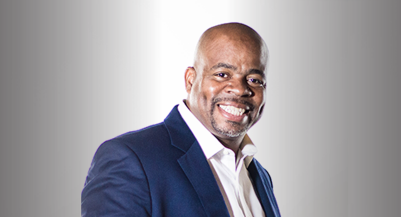
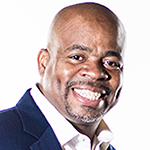 About Andre Norman
About Andre Norman
